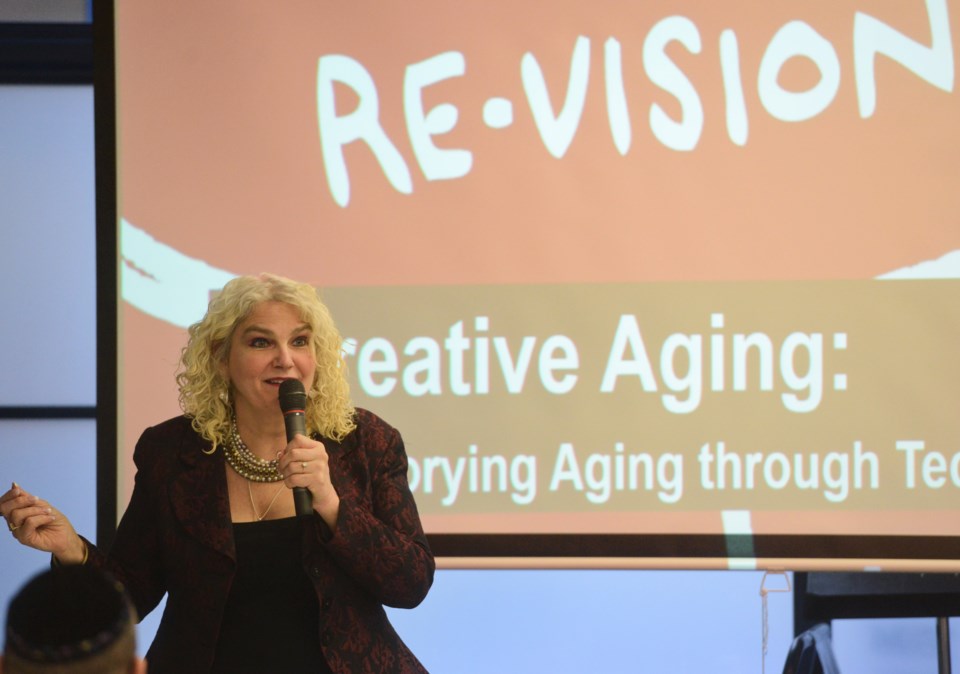Using art and storytelling created by aging members of our society can be essential tools to help change the way society perceives, treats and defines them.
That was the keynote message delivered at the Reflections on Aging event Wednesday at the Evergreen Seniors Centre.
Co-hosted by the Canadian Mental Health Association Waterloo Wellington and Age Friendly Guelph, the event featured guest speakers and panels offering insight into the intersection of aging and mental health.
University of Guelph professor Carla Rice, who heads up the Re•Vision: the Centre for Art and Social Justice at the U of G, was the keynote speaker.
Her work revolves around using art, culture and community engagement to challenge and shift stereotypes and help influence the policy and policy makers.
Art created by the aging population can challenge and change the single narrative about what it means to age, Rice said.
Rice asked those attending to consider how storytelling around aging and what it might offer that “dominant narratives” don’t.
“How might art and story open up necessary social and political conversations that are often hidden?” she said.
“Conversations about disability and dementia. Conversations about changing and aging, about the pains and pleasures about aging. Conversations about death and people’s experiences with dying.”
We can’t shift the system “until and unless we also shift the dominance narratives around aging and the representations around aging,” Rice told roughly 50 stakeholders attending the day-long event.
“Those things really go together. You can’t have one without the other,” she said.
“People with disabilities, whether they’re mental disabilities or physical disabilities, are often not seen as productive or vital members of our community and are often seen as people who don’t have anything to offer our culture.”
Those aging have a unique knowledge and understanding around their experience that can benefit everyone, she said.
“They have a knowledge that can be valuable for all of us around these experiences,” Rice said.
We can legislate tolerance and a certain level of respect and dignity for the aging population, Rice said, but we can’t legislate for true acceptance, caring and kindness to one another.
Culture can affect and move people. It can open up dialogue about difficult and charged subjects,” she said, “like living with pain and suffering, like pleasure and sexuality, as we age, and can help us talk about death as well.
Rice talked about the popular representation in our culture of “aging successfully,” which tends to be aimed at not having health problems, being financially secure, without disability, not having disease, taking care of your own health.
“This notion of ‘successful aging’ has been criticized … because it encourages people to believe that there’s one way to age successfully, and if you don’t fit, you’ve failed, essentially.”
It excludes many individuals, including aboriginal communities, those living with disabilities and those living in poverty among others.
Rice said 16 per cent of people live with disabilities in their adult lives.
“If we live long enough, all of us will age into disability,” she said.
We have to ask ourselves how do we advocate for changes, even locally, and use lived experience to help create those changes, she said.
“We need to create representations of aging as a livable - and of being disabled - as a livable life
“By creating these new representations we can create new realities by enlarging cultural possibilities for being and becoming old.”
